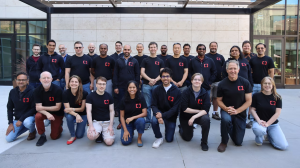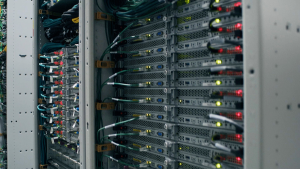Cyber Schools: The Good, Bad and Scammy
![]() In our ever-evolving technology-based society, education and the demands placed upon our students are radically different than the educational experience of just two decades ago. The American education system has slowly declined in recent decades, and parents are always looking for new ways to help ensure that their children remain ahead of the pack. In many states cyber schools are popping up and offering students a non-traditional route towards graduation, with many of the providers offering a full elementary and secondary curriculum. While it is no doubt good for students to be using technology in the classroom are cyber schools a worthy alternative to a bricks and mortar education?
In our ever-evolving technology-based society, education and the demands placed upon our students are radically different than the educational experience of just two decades ago. The American education system has slowly declined in recent decades, and parents are always looking for new ways to help ensure that their children remain ahead of the pack. In many states cyber schools are popping up and offering students a non-traditional route towards graduation, with many of the providers offering a full elementary and secondary curriculum. While it is no doubt good for students to be using technology in the classroom are cyber schools a worthy alternative to a bricks and mortar education?
There are a handful of national and international cyber schools. These computer-based classrooms give students who are having trouble in their assigned public school an opportunity to succeed—many children for a variety of reasons are unable to enjoy a productive, successful classroom experience. Bullying, physical and mental disabilities, failing schools, over-population, and lack of appropriate supplies are all reasons that children might not find success in a bricks and mortar school, and for these children, cyber schools might offer their only chance at educational excellence.
Head of the (Cyber) Class
There are a few industry leaders when it comes to online education, and likely as they become more popular for parents and students, there will be an increase in the number of choices available to parents. The industry leader, K12 is present in all 50 states, as well as some 70 countries offering public, private and individual courses fully online.
Setting K12 apart from it’s competitors is their unique private school programs, two of which are the George Washington University Online High School and the International School of Berne. Students who graduate from the various K12 programs have gone on to attend a wide range of universities including American, Brown, Columbia, Cornell, Duke, NYU, Ohio State, Penn State, Stanford, Julliard, US Air Force Academy, UC San Diego, UC Berkley, UCLA, USC, and Villanova Universities.
![]() Another successful online school is KIPP—Knowledge is Power Program—Which has helped steer students in struggling cities like Newark, Washington DC, Philadelphia, Atlanta, Los Angeles, and New York giving students who otherwise would attend failing schools a fair chance at a good future. According to KIPP’s website, 87% of their students are from low-income families eligible for free and reduced lunch meal programs, with 95% of students African American and Latino. Nationally more than 90% of KIPP middle school students have graduated high school, with more than 80% of those students going on to higher education.
Another successful online school is KIPP—Knowledge is Power Program—Which has helped steer students in struggling cities like Newark, Washington DC, Philadelphia, Atlanta, Los Angeles, and New York giving students who otherwise would attend failing schools a fair chance at a good future. According to KIPP’s website, 87% of their students are from low-income families eligible for free and reduced lunch meal programs, with 95% of students African American and Latino. Nationally more than 90% of KIPP middle school students have graduated high school, with more than 80% of those students going on to higher education.
Scams in Online Classrooms
Yet, while these are two examples of the incredible success of cyber schools, cities have experienced a much more sinister side of the coin—elaborate scams that only hurt our children, waste our tax-dollars, and damage the reputation of legitimate cyber schools. These problems are accentuated in the state of Pennsylvania, where the PA Cyber School essentially created the online education industry, and where online charter schools (and their negative cohorts) have exploded in popularity, in an effort to overhaul and improve failing districts, particularly Philadelphia. In 2002 only 44% of students graduated on time, with another six percent going on to graduate in six years or less, increasing to a 61% graduation rate in 2011, driven largely by students in charter schools.
One such example is the Frontier Virtual Charter High School, which was forced to surrender its charter—effectively shutting down the school. The two most important aspects of cyber education—computers and Internet access were not provided and reimbursed for, leaving cash-strapped parents on the hook. The cyber charter school’s administration failed to monitor attendance, truancy, and grades highlighting a well-documented problem of Philadelphia-based charter schools, yet they were happily accepting state-provided payments for the students who were supposed to be attending. While big, national schools such as K12 and KIPP are leading their students to success, schools like Frontier Virtual are holding students back.
Is Cyber School Right for You?
![]() So how does a parent make the difficult decision to pull their child(ren) from their bricks and mortar school and turn to cyber education? There are many factors that need to be taken into account. The first question the parent needs to ask is how comfortable are they with the technology. Computers can be overwhelming, and if a parent isn’t accustomed to using the computer as a big part of life, cyber education likely will be a hard adjustment—technology is the driver of the education.
So how does a parent make the difficult decision to pull their child(ren) from their bricks and mortar school and turn to cyber education? There are many factors that need to be taken into account. The first question the parent needs to ask is how comfortable are they with the technology. Computers can be overwhelming, and if a parent isn’t accustomed to using the computer as a big part of life, cyber education likely will be a hard adjustment—technology is the driver of the education.
Consider student needs
Next, the parent(s) need to weigh the needs of the student. Why is their child leaving their bricks and mortar school? Is cyber education a means to resolve a problem in the school, or is the school itself failing and therefore no positive solution outside of removal exists? Or do the parents disagree with the morals/education they would receive at their bricks and mortar school and cyber education is a viable alternative to homeschooling.
Cyber education might be great for a high-achieving student who would be more comfortable moving at their own pace, but a cyber school might not be ideal for students who have developmental disabilities or learning disabilities. Oftentimes bricks and mortar schools are able to provide learning supports and aides that are unavailable in the home.
Social ramifications & competitiveness
Parents also need to consider the social ramifications of pulling their child(ren) from a bricks and mortar school, but if the child is suffering socially at school then cyber schooling might be the better answer.
Another consideration is the competitiveness of the school district. If the school district is failing, then Cyber School might offer a chance at a better future and their public school might not be able to offer. Many failing districts have resorted to lottery-based distribution of charter school spots, forcing parents to rely on luck to get their children in an acceptable school.
Lastly, parents need to carefully pick the program best for their needs as well as the needs of the child. Not all cyber schools are created equally, and they cannot be treated as such. Parents need to carefully make this decision, and need to be fully informed in order to make it and ensure that their child(ren) are in the best situation to learn best.
A message from John Furrier, co-founder of SiliconANGLE:
Your vote of support is important to us and it helps us keep the content FREE.
One click below supports our mission to provide free, deep, and relevant content.
Join our community on YouTube
Join the community that includes more than 15,000 #CubeAlumni experts, including Amazon.com CEO Andy Jassy, Dell Technologies founder and CEO Michael Dell, Intel CEO Pat Gelsinger, and many more luminaries and experts.
THANK YOU











